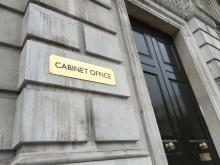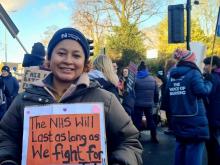Nurses are about to take strike action for better pay. This is a significant step and the first time the Royal College of Nursing has called a national strike.
Pay

Nurses held a national pay strike on 15 December, the first ever in the history of the Royal College of Nursing, with another to follow on the 20th. So far the government is avoiding meaningful negotiations.

Next month will see 70,000 members of the University and College Union striking across Britain in 150 universities, beginning on Wednesday 1 February.

The pay struggle in the civil service is spreading. PCS members in several departments are striking, other areas are likely to follow.

Offshore oil workers on two BP platforms are taking action on pay and rotas. Other energy sector workers, both offshore and onshore, are pressing their own pay claims.

Engineering workers at Diageo’s Leven plant in Fife took strike action over the first weekend in February in an escalating dispute over pay. They face pay cuts from changes to pay introduced unilaterally by the company.

Teachers in the (NEU) joined other public sector workers on strike on 1 February. National Education Union members held the first of six days planned strike action throughout England and Wales.

Households are suffering the worst squeeze in real incomes since 1945. Real pay fell by 2.5 per cent the last quarter of 2022.

Physiotherapists and support workers at over 60 NHS Trusts across England began a rolling programme of strikes on 26 January in pursuit of their pay claim – the first time they have ever taken strike action.

Nurses in England were called on by the RCN to take national strike action for the first time. This is paused for last minute talks with the government.

